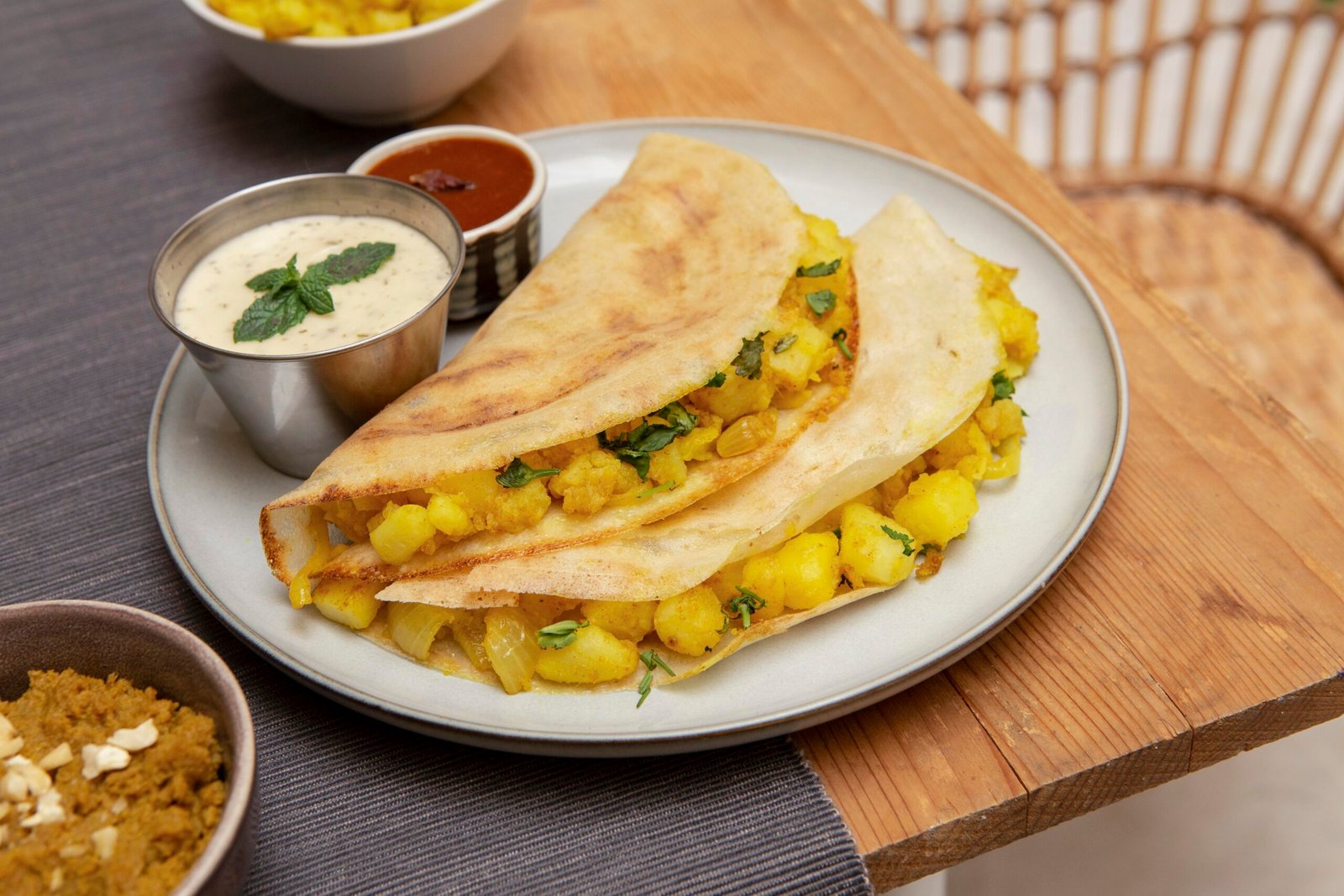Dosa, the beloved South Indian delicacy, has won the hearts and taste buds of food enthusiasts around the globe. Whether you savor it with coconut chutney, sambar, or stuffed with a spicy potato filling, dosa is a versatile dish that caters to a variety of preferences. As we embark on a journey to understand the nutritional aspect of dosa, let’s delve into the world of dosa calories and discover how this delectable dish can fit into your balanced diet.
The Basics:
Dosa, primarily made from fermented rice and urad dal (black gram), is a gluten-free, vegan option for those seeking a flavorful alternative to traditional pancakes or crepes. The fermentation process not only imparts a unique tangy flavor to dosa but also enhances its nutritional profile.

Plain Dosa: A classic plain dosa, when prepared with minimal oil, is a low-calorie option. On average, a single plain dosa contains approximately 100-120 calories. This makes it an excellent choice for individuals looking to manage their calorie intake while enjoying a tasty meal.

Masala Dosa: The addition of a potato-based filling transforms the dosa into the beloved masala dosa. While the calorie count increases due to the filling, it remains a moderate option. A standard masala dosa may contain around 200-250 calories. The potatoes contribute to the calorie content, but they also offer essential nutrients such as potassium and dietary fiber.
Caloric Variations:
Several factors influence the calorie count of dosa, including its size, thickness, and the method of preparation. A smaller, thinner dosa will naturally have fewer calories than its larger, thicker counterpart. Additionally, the use of oil and ghee during cooking can contribute to the overall caloric content. Opting for a non-stick pan and using minimal oil can help keep the calorie count in check.
Health Benefits of Dosa:
- Rich in Carbohydrates: Dosa provides a quick and efficient source of energy, thanks to its carbohydrate content. The fermented rice and urad dal contribute complex carbohydrates, offering sustained energy release.
- Protein Boost: Urad dal is a good source of protein, making dosa a suitable option for vegetarians and vegans looking to meet their protein requirements.
- Gut-Friendly Fermentation: The fermentation process not only enhances the flavor but also promotes the growth of beneficial bacteria, aiding in digestion and gut health.
- Nutrient-Rich: Dosa contains essential nutrients such as B vitamins, iron, and magnesium, contributing to overall well-being.
Dosa, with its tantalizing flavors and nutritional benefits, can be a delightful addition to your diet. By understanding dosa calories and making mindful choices in its preparation, you can enjoy this South Indian classic while maintaining a balanced and health-conscious lifestyle. So, the next time you savor a crispy, golden dosa, relish not only its taste but also the nutritional goodness it brings to your plate.





